THE MUSIC OF FORGOTTEN HISTORIES
THE MUSIC OF FORGOTTEN HISTORIES
by Norman Warwick
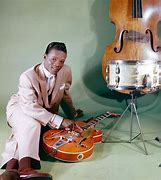
After hearing some of my pop idols like the Stones seemingly trying to right a wrong about ownership of songs I became suspicious of everything until hearing I Want The Real Thing by Chip Taylor and learning about the incredible Hank Ballard and that if I wanted to hear real music it would ´take more than The Crew Cuts and Pat Boone to bring it home.´
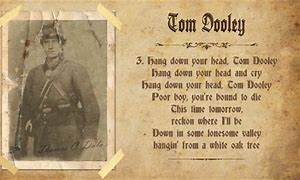
It wasn´t only pop music that was affected by this discolouration. There were plenty of my favourite folk songs, such as Hang Down Your Head Tom Dooley that been, knowingly or otherwise, culturally mis-appropriated by artists I trusted such as the Kingston Trio. Once I started to absorb the names of songwriters, and the studio players on albums I realised just how tangled are our musical roots. As humans migrate so there music goes with them, and Blue Mink were right to identify music as being poured into á great big melting pot.´
I know this stuff now. I understand how it works.
So how can I have been so naïve as to accept at face value the music I was served to satisfy my most recently acquired taste? I know the names, of course, of Beethoven, Bach and Brahms long before I suddenly fell in love with classical music as I turned fifty. Isn´t that the age when it usually happens ?
Over the last almost twenty years I have seen symphony orchestras and chamber musicians, pianists and sopranos and everything in between. I have seen large orchestras play in huge underground caves and free (government sponsored) classical performances occurred until covid19, almost weekly here on Lanzarote and we never missed them.
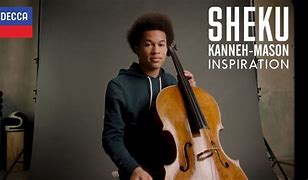
So how come I, as a reasonably intelligent and socially aware guy, somehow fail to notice that everything classical I was listening to was being presented as ´white?´ I can´t remember seeing a black musician in those orchestras or musical groups. The recent biography House Of Music by their Kadiatu describing life with her seven hugely gifted children who love classical, among other forms, was something of a wake up call, and seeing Sheku and his sister Islata perform a virtual concert for the proms earlier this month seemed very reassuring.
Last night, though, the BBC broadcast a series that told The Forgotten History Of Black Classical Music on BBCtv4.
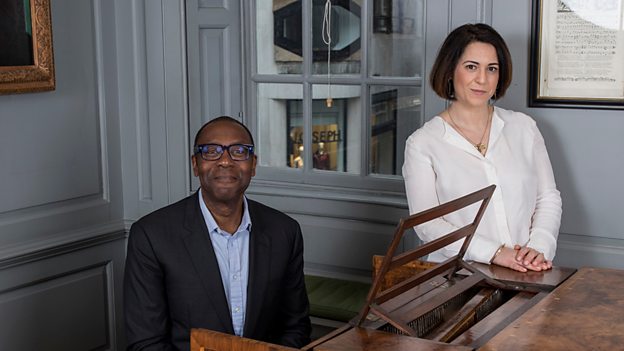
Presenters Lenny Henry and Suzy Klein (right) celebrated the lives and works of black classical composers and musicians across the centuries, whose stories have been forgotten and music neglected in the classical repertoire.
Black musicians have always composed and performed, played pivotal roles in their own times, and even helped shape and shift the course of musical history. In this documentary, Suzy Klein and Lenny Henry explored the lives and works of some of these remarkable men and women, people who achieved greatness despite the many hurdles that were placed in their way because of their race. Their stories and compositions have long deserved a much wider audience, and last night the BBC reached out to that potential new and sought to re-educate the established audience.
The film included special performances by Chineke! Orchestra: Europe’s first majority Black, Asian and minority ethnic orchestra, playing pieces by the composers the Chevalier de Saint-Georges, Samuel Coleridge-Taylor and Florence Price at the famous classical music venue St John’s Smith Square, London.
Chineke! was founded in 2015 by the double bass player, Chi-chi Nwanoku OBE, to provide career opportunities for young Black, Asian and ethnically diverse classical musicians in the UK and Europe. Chineke!’s mission is: ‘Championing change and celebrating diversity in classical music’.
The Chineke! Orchestra, the Foundation’s flagship ensemble, works closely with its sister ensemble, the Chineke! Junior Orchestra, a youth orchestra of Asian, Black and ethnically diverse players aged between 11 and 22, with senior players acting as mentors, teachers and role models to the young musicians.
In 2017, the Chineke! Orchestra made its BBC Proms debut at the Royal Albert Hall in August and performed at many other leading festivals throughout England, all to great critical acclaim. Chineke! has released four CDs to date, which you can hear on Spotify.
The Chineke! Ensemble comprises the principal players of the Chineke! Orchestra. It has performed in Manchester in 2017 and made its debut at Wigmore Hall in 2018 before going on to play at the Cheltenham and Ryedale festivals. It has since performed at the Tonbridge Music Club, Wimbledon International Festival, Cambrige Music Festival, St George’s Bristol and Snape Maltings.
Chineke!’s founder, Chi-chi Nwanoku OBE, says: ‘My aim is to create a space where Black, Asian and ethnically diverse musicians can walk on stage and know that they belong, in every sense of the word. If even one BME child feels that their colour is getting in the way of their musical ambitions, then I hope to inspire them, give them a platform, and show them that music, of whatever kind, is for all people.’
In the words of Sir Simon Rattle: ‘Chineke! is not only an exciting idea but a profoundly necessary one. The kind of idea which is so obvious that you wonder why it is not already in place. The kind of idea which could deepen and enrich classical music in the UK for generations. What a thrilling prospect!’
Meanwhile, along the way, Lenny learned to dance to one of Ignatius Sancho’s minuets while Suzy played it on a harpsichord, and he sang Scott Joplin’s Ragtime classic Maple Leaf Rag with Suzy on piano.
Suzy met star violinist Braimah Kanneh-Mason, (from the aforementioned House of Music) who played from Beethoven’s Kreutzer sonata, first performed by George Bridgetower;
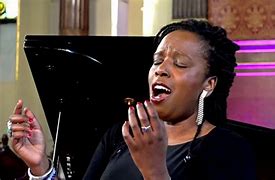
Lenny even took a fencing lesson and learned how Chevalier de Saint-Georges’ mastery of that art informed his compositions for the violin, and rising star soprano Nadine Benjamin sang from Joplin’s opera Treemonisha and composer Shirley Thompson’s Psalm To Windrush.
The film featured interviews with Chi-chi Nwanoku (founder and artistic director of Chineke!), Gillian Moore, Director of Music at London’s South Bank Centre; composer and pianist Julian Joseph; actor and author Paterson Joseph and Professor Shirley Thompson.
Black Classical Music: The Forgotten History was a Douglas Road Production. It was commissioned for BBC Arts and BBC Four by Jan Younghusband, favourably mentioned on previous occasions across these pages. Producer and director was Guy Evans. Executive Producers were Angela Ferreira and Liz Hartford.
It aired last night at 9pm on BBC Four and was a revelation to me. The shades fell from my eyes as they had when first I began to understand folk music and pop music.
If you missed the programme it is well worth seeking it out on catch up, as it was packed full of anecdotes revelations.

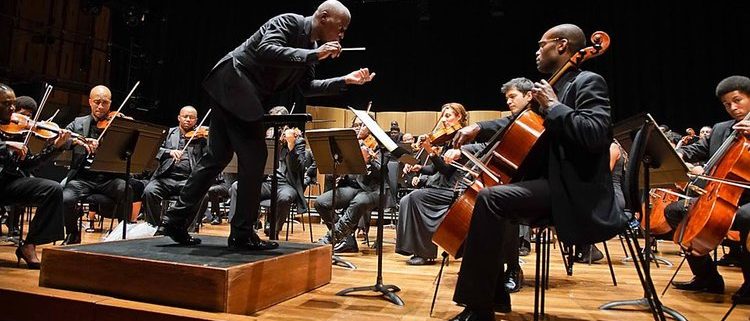


Leave a Reply
Want to join the discussion?Feel free to contribute!